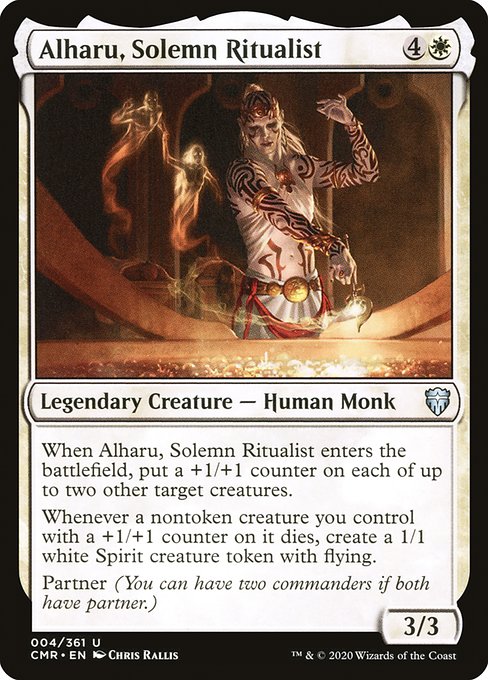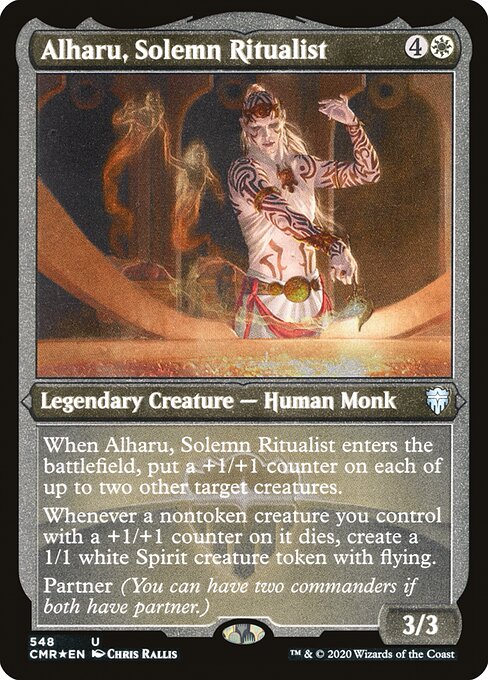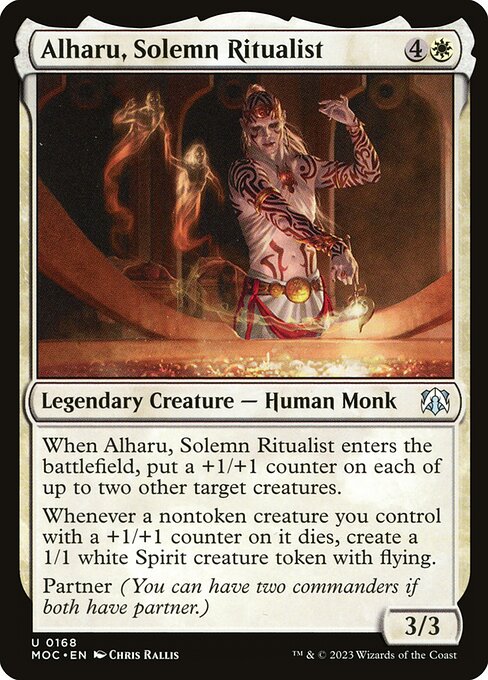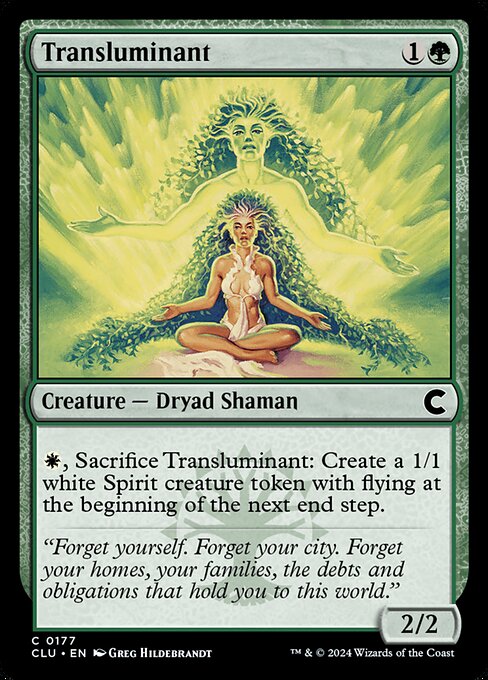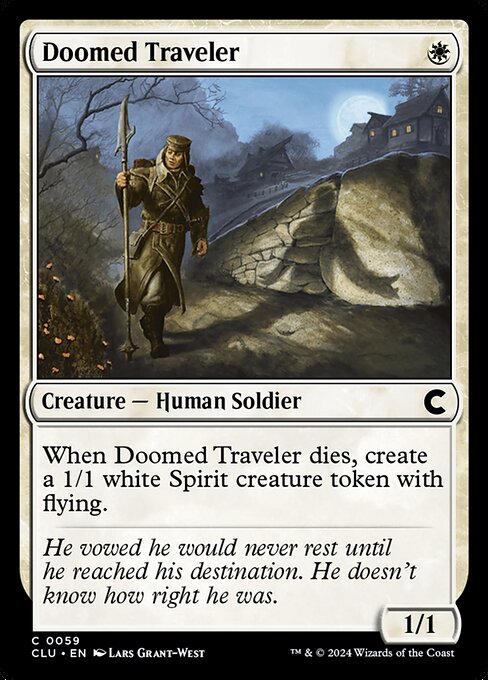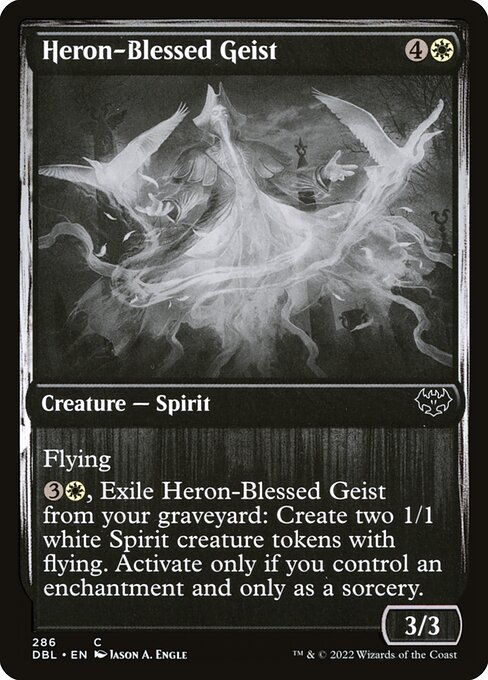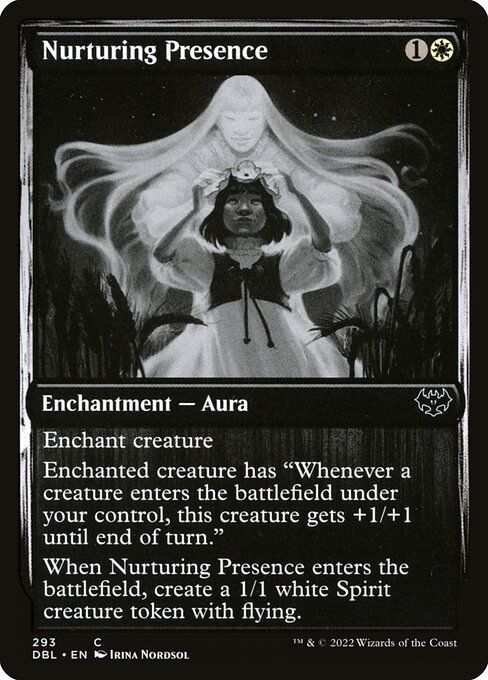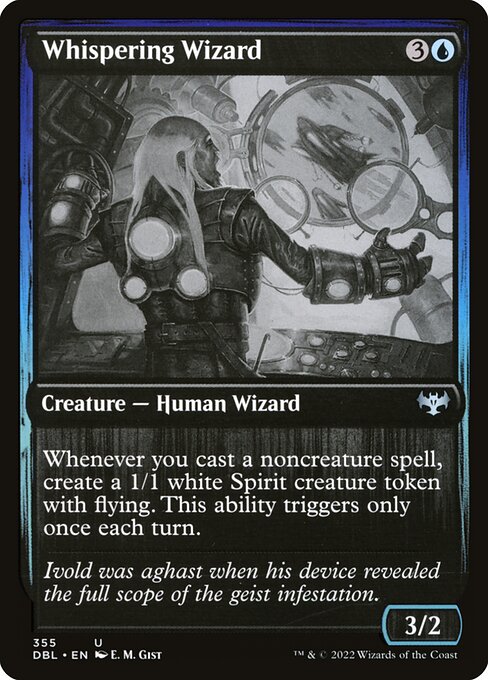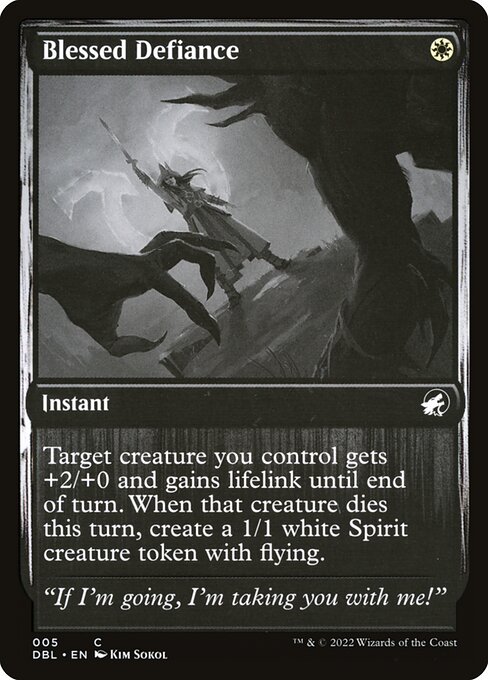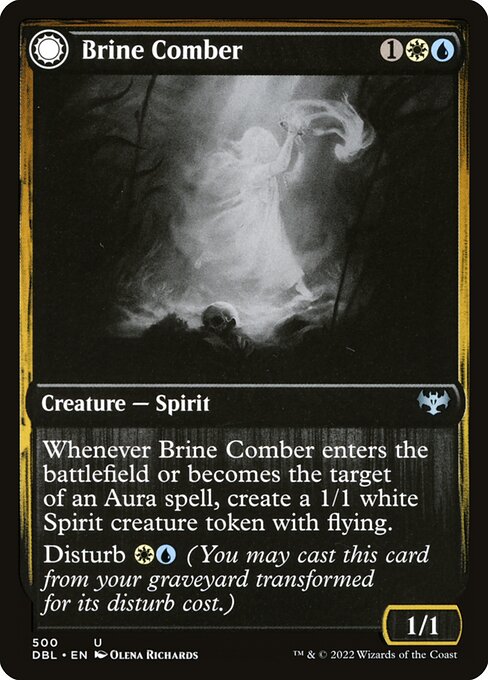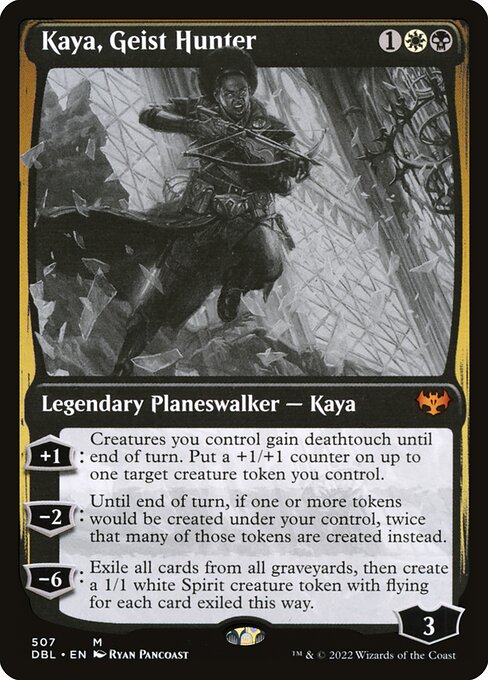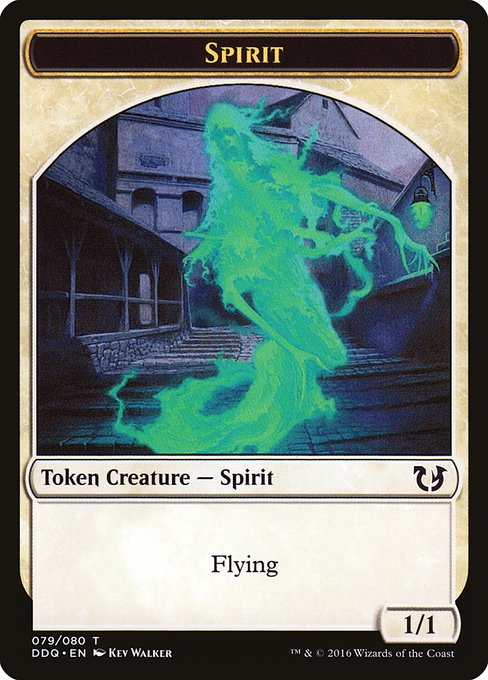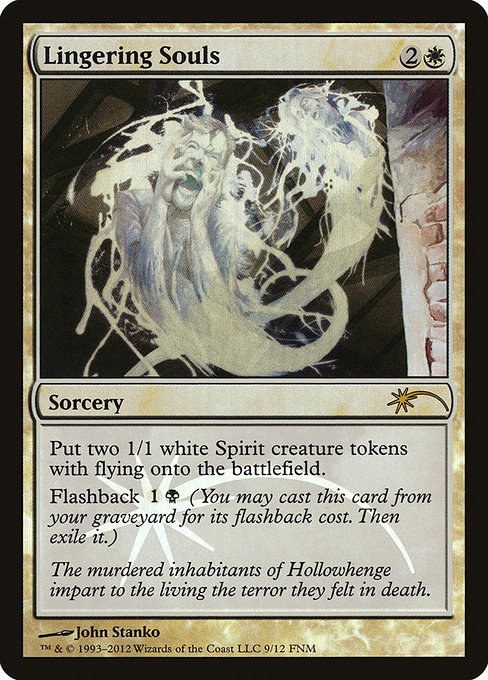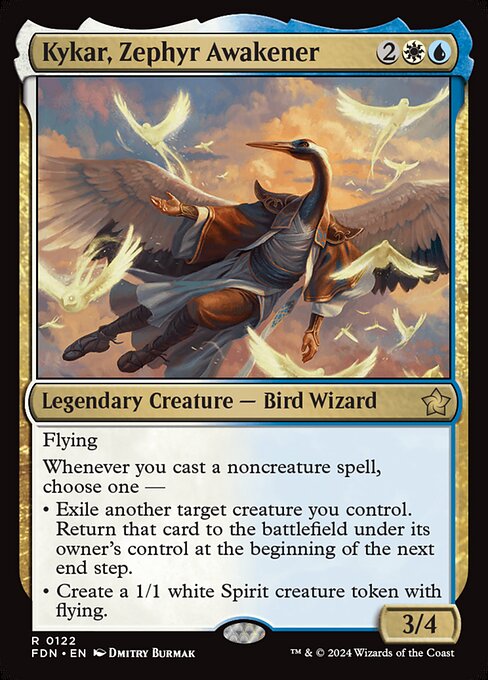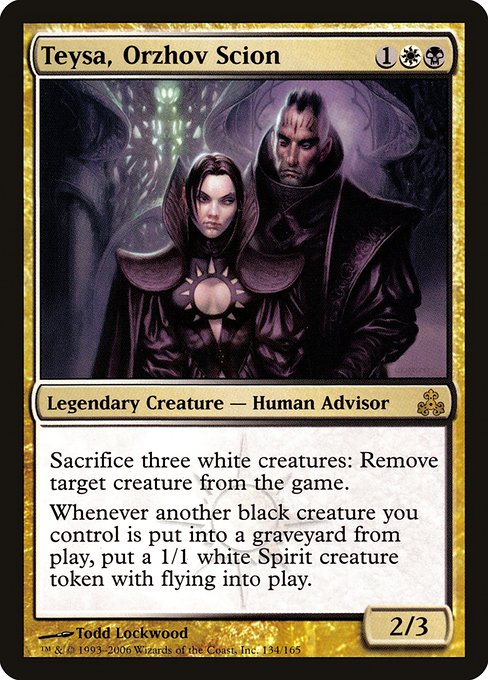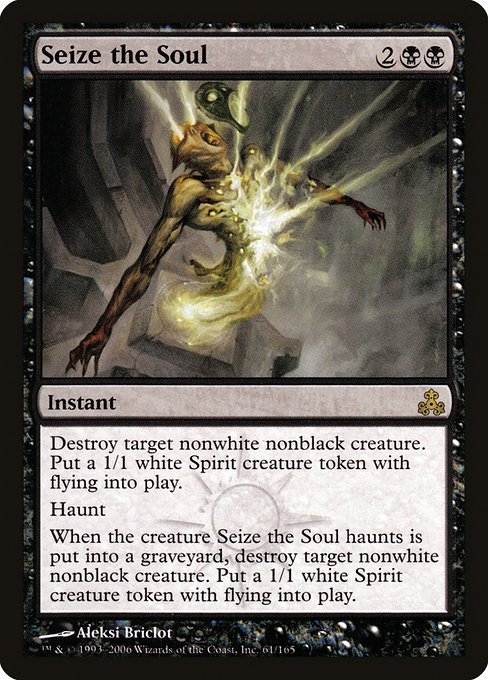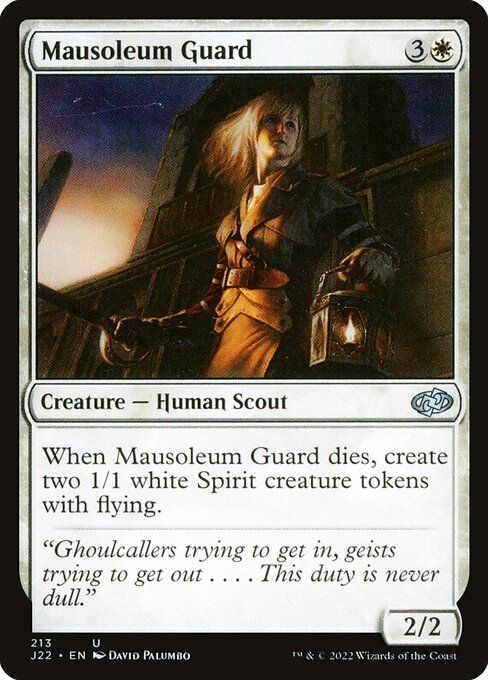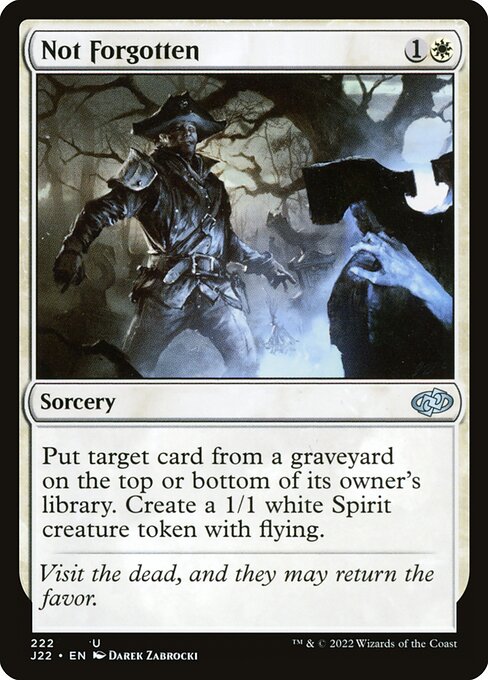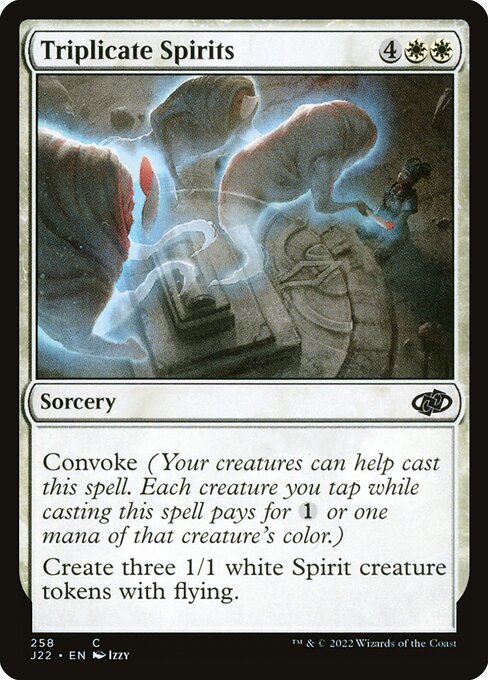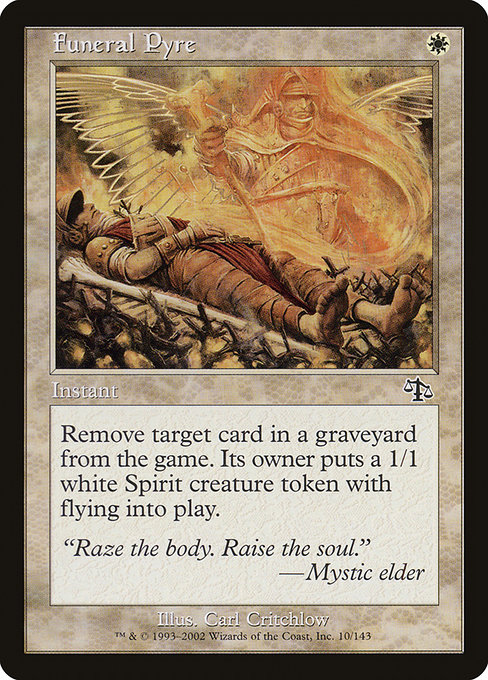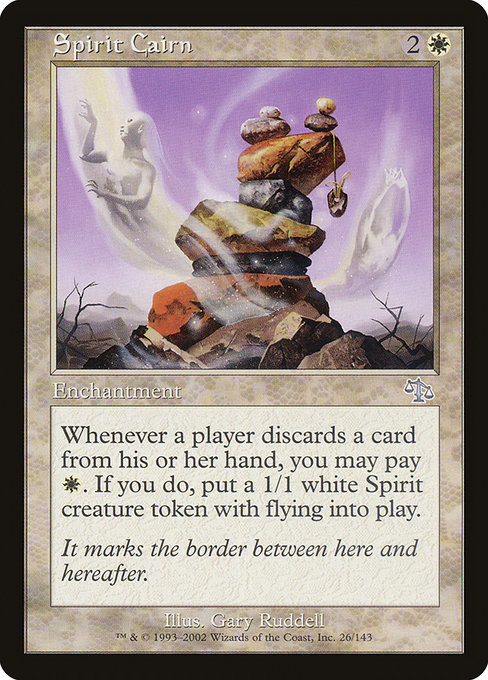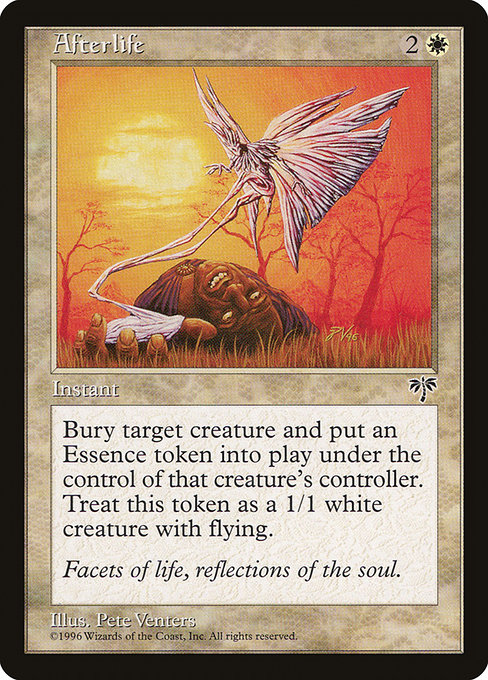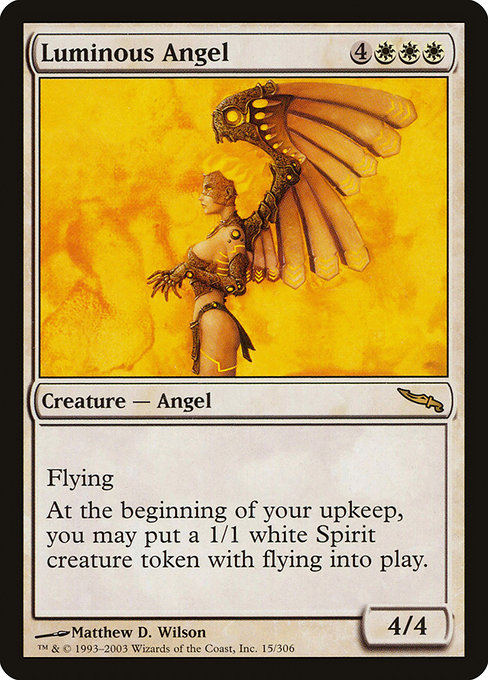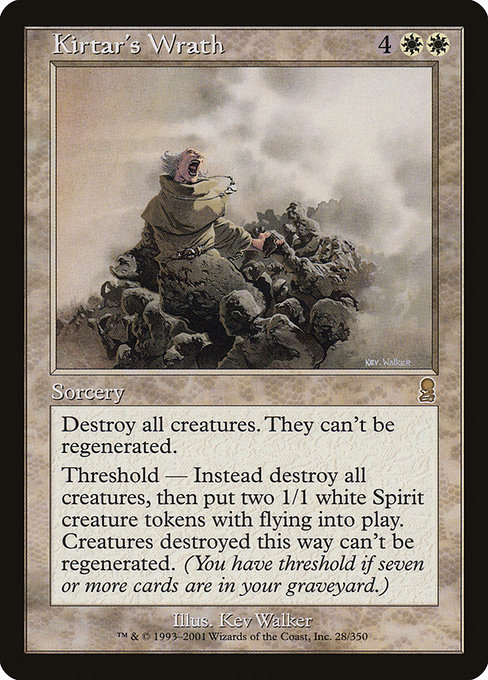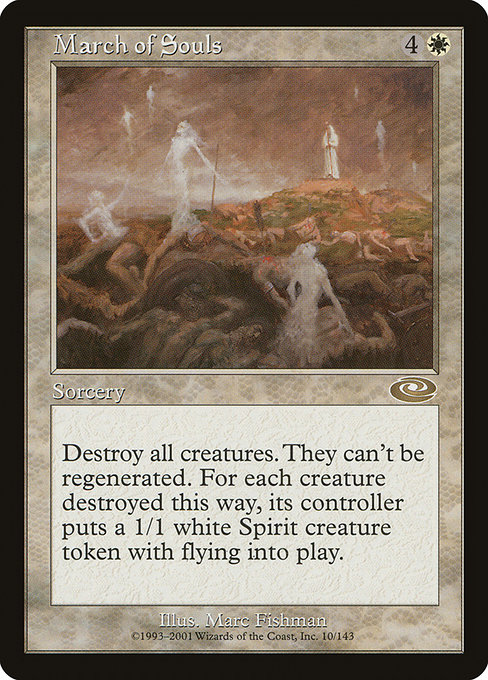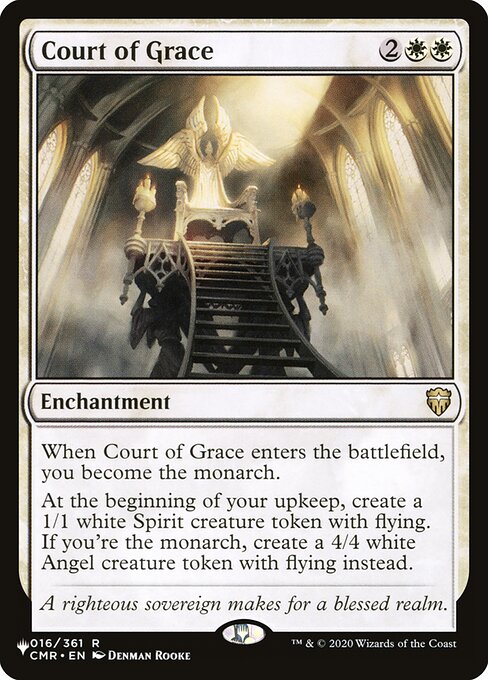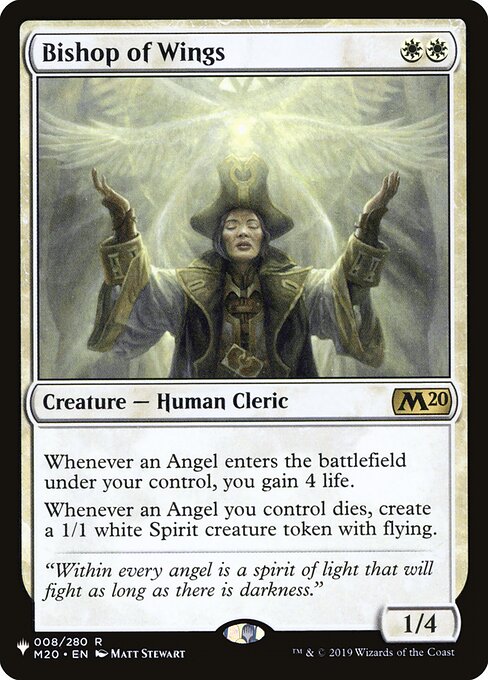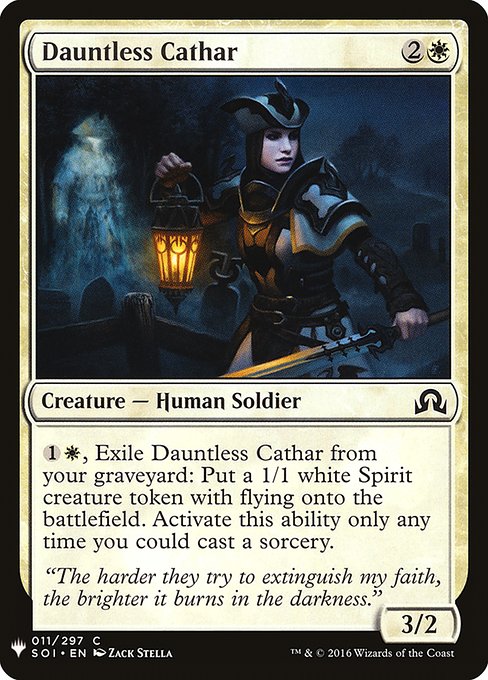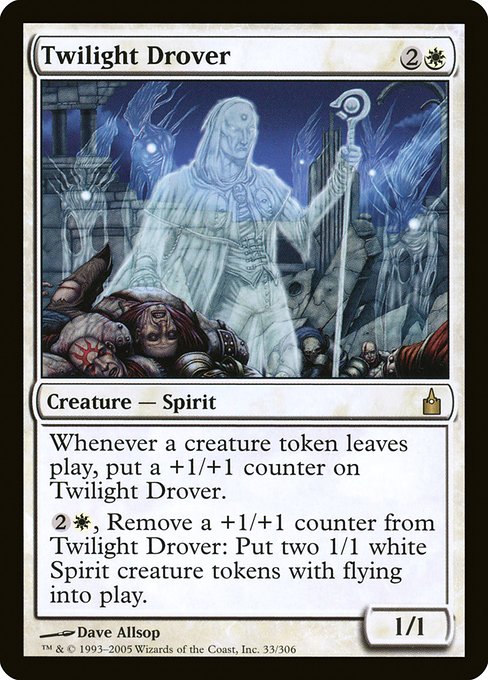Alharu, ritualista solemne
Criatura legendaria — Monje humano
Cuando Alharu, ritualista solemne entre al campo de batalla, pon un contador +1/+1 sobre cada una de hasta otras dos criaturas objetivo.
Siempre que una criatura que no sea ficha que controlas con un contador +1/+1 sobre ella muera, crea una ficha de criatura Espíritu blanca 1/1 con la habilidad de volar.
Camarada. (Puedes tener dos comandantes si ambos tienen camarada.)
Siempre que una criatura que no sea ficha que controlas con un contador +1/+1 sobre ella muera, crea una ficha de criatura Espíritu blanca 1/1 con la habilidad de volar.
Camarada. (Puedes tener dos comandantes si ambos tienen camarada.)
3/3
standard
future
historic
gladiator
pioneer
explorer
modern
legacy
pauper
vintage
penny
commander
brawl
alchemy
paupercommander
duel
oldschool
premodern
Rulings
If Alharu has a +1/+1 counter on it and dies, its ability triggers for itself.
To have two commanders, both must have the partner ability as the game begins. Losing the ability during the game doesn’t cause either to cease to be your commander.
Both commanders start in the command zone, and the remaining 98 cards (or 58 cards in a Commander Draft game) of your deck are shuffled to become your library.
You can choose two commanders with partner that are the same color or colors. In Commander Draft, you can even choose two of the same commander with partner if you drafted them. If you do this, make sure you keep the number of times you’ve cast each from the command zone clear for “commander tax” purposes.
If your Commander deck has two commanders, you can only include cards whose own color identities are also found in your commanders’ combined color identities. If Falthis and Kediss are your commanders, your deck may contain cards with black and/or red in their color identity, but not cards with green, white, or blue.
If something refers to your commander while you have two commanders, it refers to one of them of your choice. If you are instructed to perform an action on your commander (e.g. put it from the command zone into your hand due to Command Beacon), you choose one of your commanders at the time the effect happens.
An effect that checks whether you control your commander is satisfied if you control one or both of your two commanders.
You create just one Spirit token, not one for each +1/+1 counter that was on the creature that died.
If a creature you control with a +1/+1 counter on it dies at the same time as Alharu, Alharu’s ability triggers for that creature.
Once the game begins, your two commanders are tracked separately. If you cast one, you won’t have to pay an additional the first time you cast the other. A player loses the game after having been dealt 21 damage from any one of them, not from both of them combined.
To have two commanders, both must have the partner ability as the game begins. Losing the ability during the game doesn’t cause either to cease to be your commander.
Both commanders start in the command zone, and the remaining 98 cards (or 58 cards in a Commander Draft game) of your deck are shuffled to become your library.
You can choose two commanders with partner that are the same color or colors. In Commander Draft, you can even choose two of the same commander with partner if you drafted them. If you do this, make sure you keep the number of times you’ve cast each from the command zone clear for “commander tax” purposes.
If your Commander deck has two commanders, you can only include cards whose own color identities are also found in your commanders’ combined color identities. If Falthis and Kediss are your commanders, your deck may contain cards with black and/or red in their color identity, but not cards with green, white, or blue.
If something refers to your commander while you have two commanders, it refers to one of them of your choice. If you are instructed to perform an action on your commander (e.g. put it from the command zone into your hand due to Command Beacon), you choose one of your commanders at the time the effect happens.
An effect that checks whether you control your commander is satisfied if you control one or both of your two commanders.
You create just one Spirit token, not one for each +1/+1 counter that was on the creature that died.
If a creature you control with a +1/+1 counter on it dies at the same time as Alharu, Alharu’s ability triggers for that creature.
Once the game begins, your two commanders are tracked separately. If you cast one, you won’t have to pay an additional the first time you cast the other. A player loses the game after having been dealt 21 damage from any one of them, not from both of them combined.
Rulings
If Alharu has a +1/+1 counter on it and dies, its ability triggers for itself.
To have two commanders, both must have the partner ability as the game begins. Losing the ability during the game doesn’t cause either to cease to be your commander.
Both commanders start in the command zone, and the remaining 98 cards (or 58 cards in a Commander Draft game) of your deck are shuffled to become your library.
You can choose two commanders with partner that are the same color or colors. In Commander Draft, you can even choose two of the same commander with partner if you drafted them. If you do this, make sure you keep the number of times you’ve cast each from the command zone clear for “commander tax” purposes.
If your Commander deck has two commanders, you can only include cards whose own color identities are also found in your commanders’ combined color identities. If Falthis and Kediss are your commanders, your deck may contain cards with black and/or red in their color identity, but not cards with green, white, or blue.
If something refers to your commander while you have two commanders, it refers to one of them of your choice. If you are instructed to perform an action on your commander (e.g. put it from the command zone into your hand due to Command Beacon), you choose one of your commanders at the time the effect happens.
An effect that checks whether you control your commander is satisfied if you control one or both of your two commanders.
You create just one Spirit token, not one for each +1/+1 counter that was on the creature that died.
If a creature you control with a +1/+1 counter on it dies at the same time as Alharu, Alharu’s ability triggers for that creature.
Once the game begins, your two commanders are tracked separately. If you cast one, you won’t have to pay an additional the first time you cast the other. A player loses the game after having been dealt 21 damage from any one of them, not from both of them combined.
To have two commanders, both must have the partner ability as the game begins. Losing the ability during the game doesn’t cause either to cease to be your commander.
Both commanders start in the command zone, and the remaining 98 cards (or 58 cards in a Commander Draft game) of your deck are shuffled to become your library.
You can choose two commanders with partner that are the same color or colors. In Commander Draft, you can even choose two of the same commander with partner if you drafted them. If you do this, make sure you keep the number of times you’ve cast each from the command zone clear for “commander tax” purposes.
If your Commander deck has two commanders, you can only include cards whose own color identities are also found in your commanders’ combined color identities. If Falthis and Kediss are your commanders, your deck may contain cards with black and/or red in their color identity, but not cards with green, white, or blue.
If something refers to your commander while you have two commanders, it refers to one of them of your choice. If you are instructed to perform an action on your commander (e.g. put it from the command zone into your hand due to Command Beacon), you choose one of your commanders at the time the effect happens.
An effect that checks whether you control your commander is satisfied if you control one or both of your two commanders.
You create just one Spirit token, not one for each +1/+1 counter that was on the creature that died.
If a creature you control with a +1/+1 counter on it dies at the same time as Alharu, Alharu’s ability triggers for that creature.
Once the game begins, your two commanders are tracked separately. If you cast one, you won’t have to pay an additional the first time you cast the other. A player loses the game after having been dealt 21 damage from any one of them, not from both of them combined.
Your collection? Your decks?
Want to manage your collection and/or create decks?


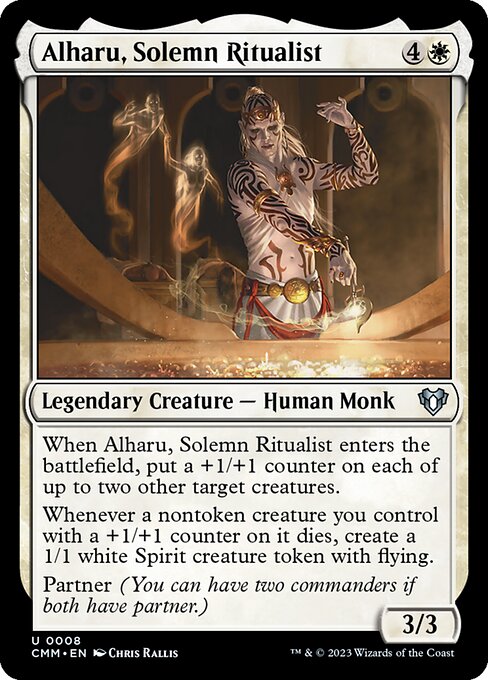
 0
0
 0.09€
0.09€
